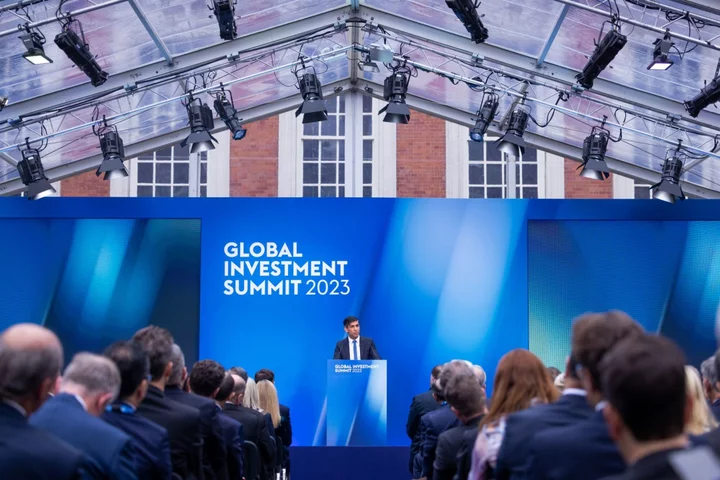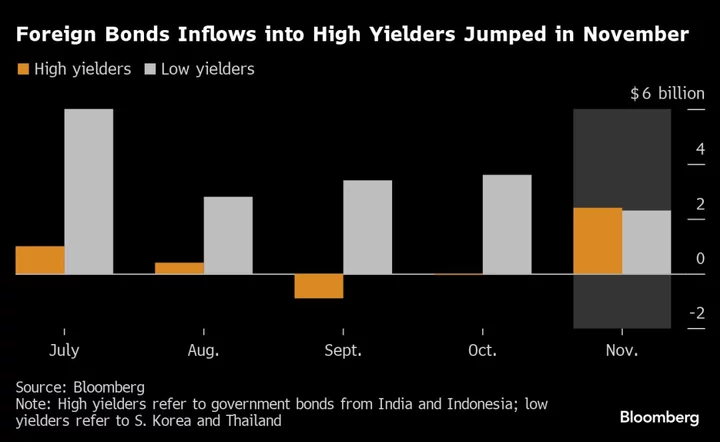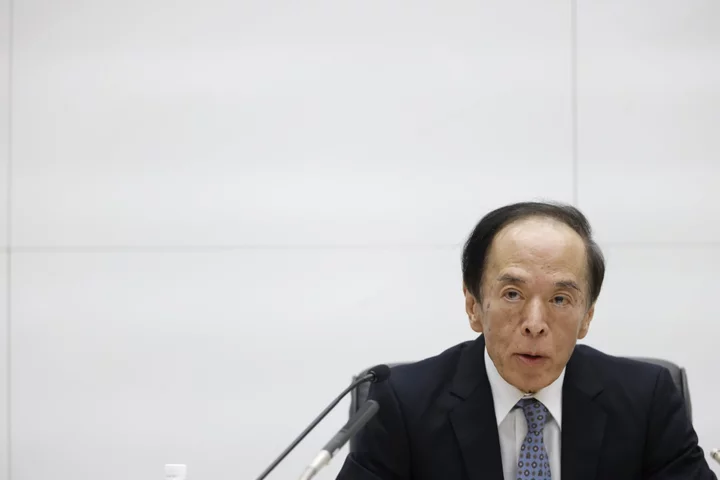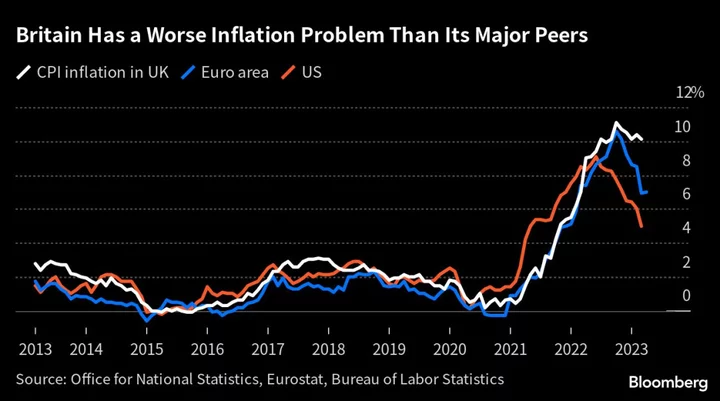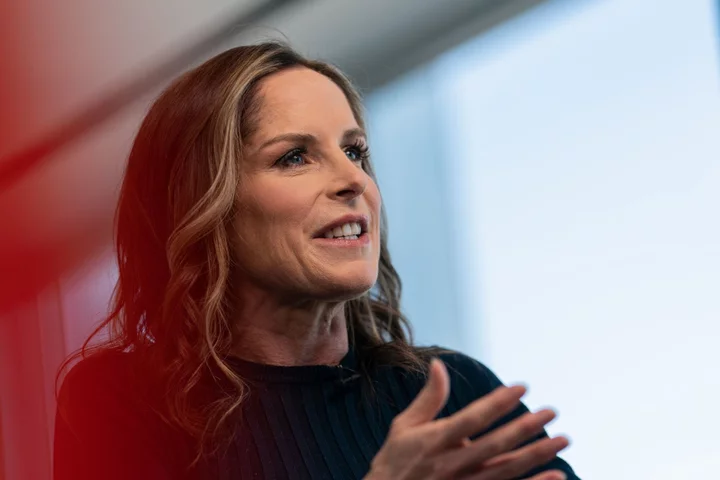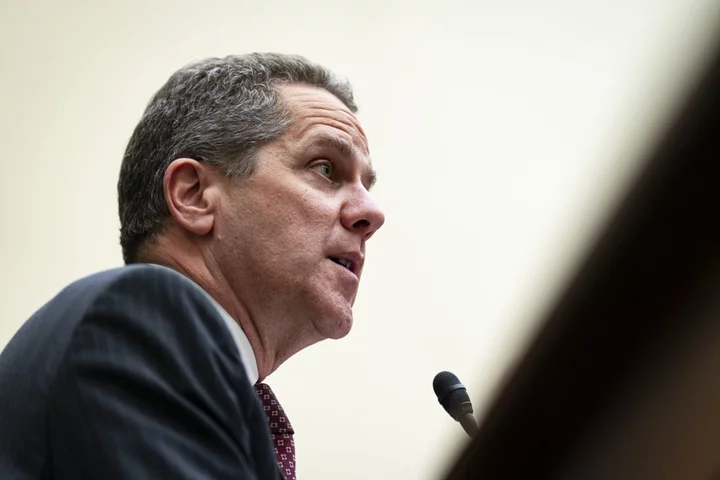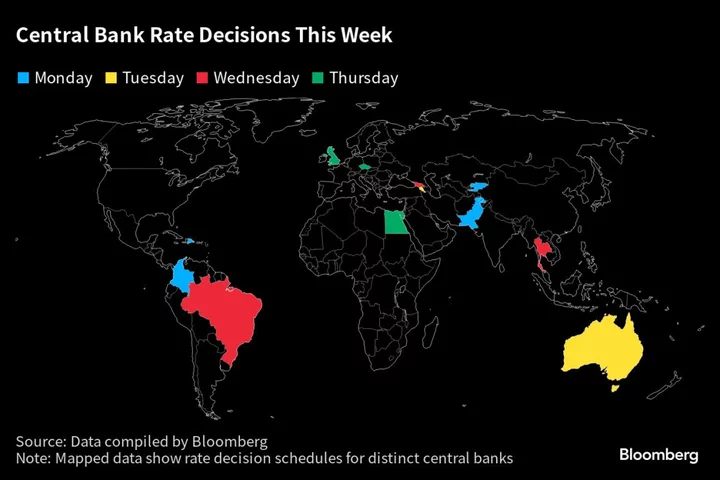Prime Minister Rishi Sunak pulled out all the stops on Monday to plug the UK as a place to invest. His top ministers joined global business leaders at a Tudor palace, where he touted £30 billion of spending commitments as proof of international “confidence” in the British economy.
But hours earlier, his main political rivals — opposition Labour Party leader Keir Starmer and shadow chancellor Rachel Reeves — held their own breakfast meeting with senior bankers and business figures in London. The event was organized after numerous requests from companies due to attend Sunak’s summit at Hampton Court, a person familiar with the matter said.
The parallel gathering points to the awkward reality facing Sunak, whose struggles to put a dent in Labour’s double-digit poll lead are helping to cement expectations that his governing Conservative Party will be ousted at the next general election, due by January 2025 at the latest.
For Starmer and Reeves, the breakfast meeting is further evidence that outreach efforts with businesses and the City of London are paying dividends, after the party’s relations with business were damaged under their left-wing predecessors Jeremy Corbyn and John McDonnell.
A Labour Party spokesman declined to comment on the event.
The premier is running out of opportunities to shift the political narrative. Monday’s summit was aimed at drumming up foreign investment to boost the UK economy, which only narrowly avoided a recession this year. The UK’s official fiscal watchdog downgraded its growth forecast last week, taking into account measures in Chancellor of the Exchequer Jeremy Hunt’s Autumn Statement.
“The purest expression of this government’s economic philosophy is that people and businesses make far better decisions about their own money than any government,” Sunak said at the investment summit.
In an interview with Bloomberg TV late Sunday, Sunak denied his economic plans are about to deliver a fresh bout of UK austerity, even after the Office for Budget Responsibility warned his tax-cutting strategy assumes a significant squeeze on stretched public services.

